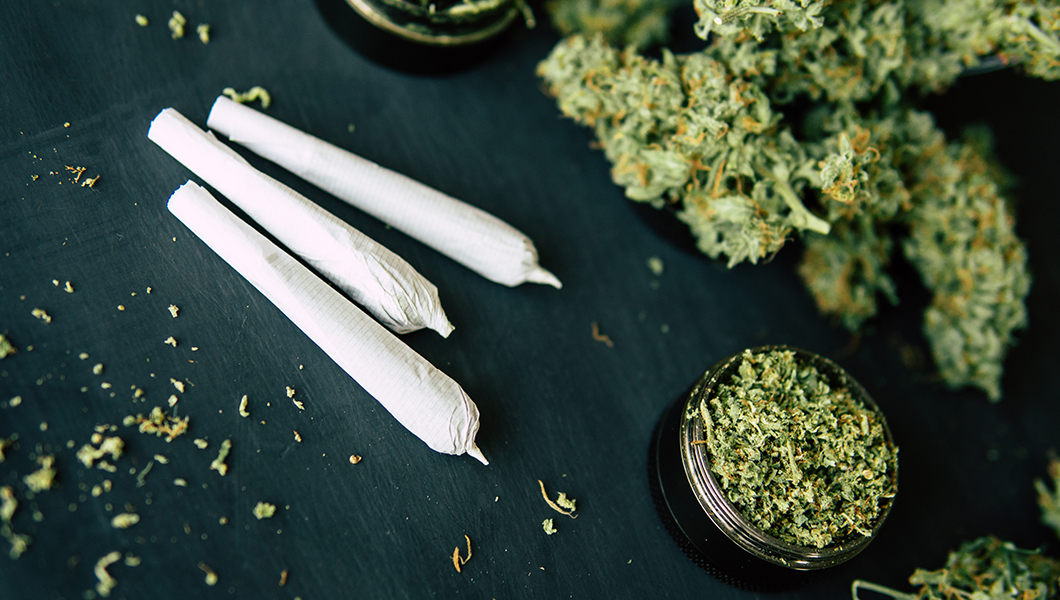President Joe Biden announced Thursday a pardon for all prior federal offenses of simple possession of marijuana in a monumental move that some advocates say helps remedy the “failure” of the war on drugs.
In effect, Biden’s pardon clears roughly 6,500 people who were convicted of simple possession of marijuana under federal law between 1992 and 2021. While that number might appear small on the surface, human rights attorney Jessica Jackson told the Washington Examiner that removing the “collateral consequences” from these previous convictions will “make a huge difference in a lot of people’s lives.”
“There are 44,000 collateral consequences, everything from not being able to get housing or not being able to get a job that you might be otherwise qualified for, to being locked out or getting a bank account. And you know, we are excited to see those barriers removed,” said Jackson, who mentioned figures that align with a 2019 report by the U.S. Commission on Civil Rights.
BIDEN TO PARDON PRIOR FEDERAL SIMPLE MARIJUANA POSSESSION OFFENSES

In his announcement, Biden also urged the governors of every state in the union to take the same action with state marijuana offenses. Marijuana for medicinal use is permitted in 37 states and Washington, D.C.
A spokesperson for Ohio Gov. Mike DeWine (R), who leads a state that only allows card-holding medicinal cannabis patients to consume and carry the substance legally, said Thursday that the governor is reviewing Biden’s request.
If DeWine issued such pardons, his action would likely affect tens of thousands of Ohioans, according to an August study from the Drug Enforcement and Policy Center, which found that 3.3% of Columbus residents have been charged with misdemeanor possession, while 0.56% of adults in the city have convictions.
Meanwhile, Democratic Pennsylvania Gov. Tom Wolf has already been offering pardons to people with simple possession of marijuana-related offenses. As of last month, more than 2,500 people had applied for pardons, according to Wolf’s office.
Other previous convictions that won’t be forgiven by Biden’s plan include people who were not in the United States legally during the time of their offense and people with federal convictions for other cannabis-related crimes, such as drug trafficking.
The Department of Justice said those who qualify for a federal pardon can begin to receive certification in the coming days, but those who think they qualify will most likely need to submit proof to “achieve the full benefits of a pardon.”
A date has not been established for the pardon application period, and the DOJ encourages those who are interested to check the website for forthcoming updates.
“In the near future, the Office of the Pardon Attorney will make available a short application form for individuals seeking a certificate of pardon, along with instructions for completing the application. We will make this form available as quickly as we can,” a DOJ press release says.
The DOJ underscored that pardons only apply to charges that happened on or before Oct. 6, meaning any repeat offenders or charges after this date are ineligible.
Nearly 29 million U.S. residents have been arrested for marijuana-related charges since 1965, according to the National Organization for the Reform of Marijuana Laws.
Additionally, most federal convictions for simple marijuana possession since 2008 have happened in Arizona, which amounted to 86.7% of total U.S. convictions for the caseload in fiscal year 2013, an immense jump from just 3.8% for the state during fiscal year 2008, according to the U.S. Sentencing Commission.
The spike there was related to drug smuggling across the U.S.-Mexico border. The median quantity a person had in possession coming from outside the U.S. border was 22,000 grams of marijuana, compared to 5.2 grams for those arrested for simple possession on the U.S. side of the border. Noncitizens or those here illegally won’t be pardoned under Biden’s proclamation, according to the White House.
Advocates such as Jackson applauded the White House announcement for its aim to eliminate discrimination against minority offenders, as data from the American Civil Liberties Union suggest that black people are 3.64 times more likely than white people to be arrested for cannabis possession.
“It’s often that in communities where there are racial disparities or underrepresented minorities, there are going to be more arrests and more prosecutions and longer sentences handed down,” Jackson added.
Biden also tapped Health and Human Services Secretary Xavier Becerra and Attorney General Merrick Garland to review whether marijuana can be bumped from a Schedule I drug to a Schedule II drug, which would make it easier to study the substance, legalize, and further decriminalize possession.
Although cannabis is currently in the category alongside drugs such as LSD and heroin, 68% of voters say they support legalizing marijuana, according to a recent Gallup poll.
Additionally, five states are voting on recreational cannabis legalization in the 2022 midterm elections: North and South Dakota, Missouri, Arkansas, and Maryland.
CLICK HERE TO READ MORE FROM THE WASHINGTON EXAMINER
Biden’s decision comes as his administration has sustained declining public approval ratings that began again following another sharp rise in oil and fuel costs.
Republicans have criticized the decision as a way for Democrats to rack up more favorability ahead of the November midterm elections, including Ohio Attorney General Dave Yost (R), who advocates declassifying the substance but called Biden’s move “the most political, cynical abuse of the pardon power in history.”
